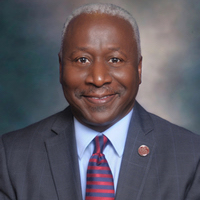 Recently, South Carolina State University learned that is was being removed from probation by the Southern Commission on Colleges and Schools (see JBHE post). Now, the university has named a new president to begin a new era at the university.
Recently, South Carolina State University learned that is was being removed from probation by the Southern Commission on Colleges and Schools (see JBHE post). Now, the university has named a new president to begin a new era at the university.
James E. Clark was named the 12th president of South Carolina State University. Clark has been a member of the board of trustees of South Carolina State University for the past year. He has also been chair of the University of South Carolina Research Foundation for the past three years and a member of the board of trustees of Benedict College in Columbia, South Carolina, for the past 18 years.
Clark has had a successful career in business as a vice president of AT&T’s computer division and as an executive for Exxon, Gillette, and General Electric.
Clark is a graduate of the Massachusetts Institute of Technology and the Sloan School of Management at MIT.











